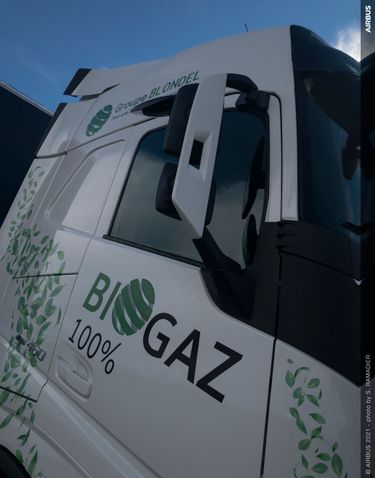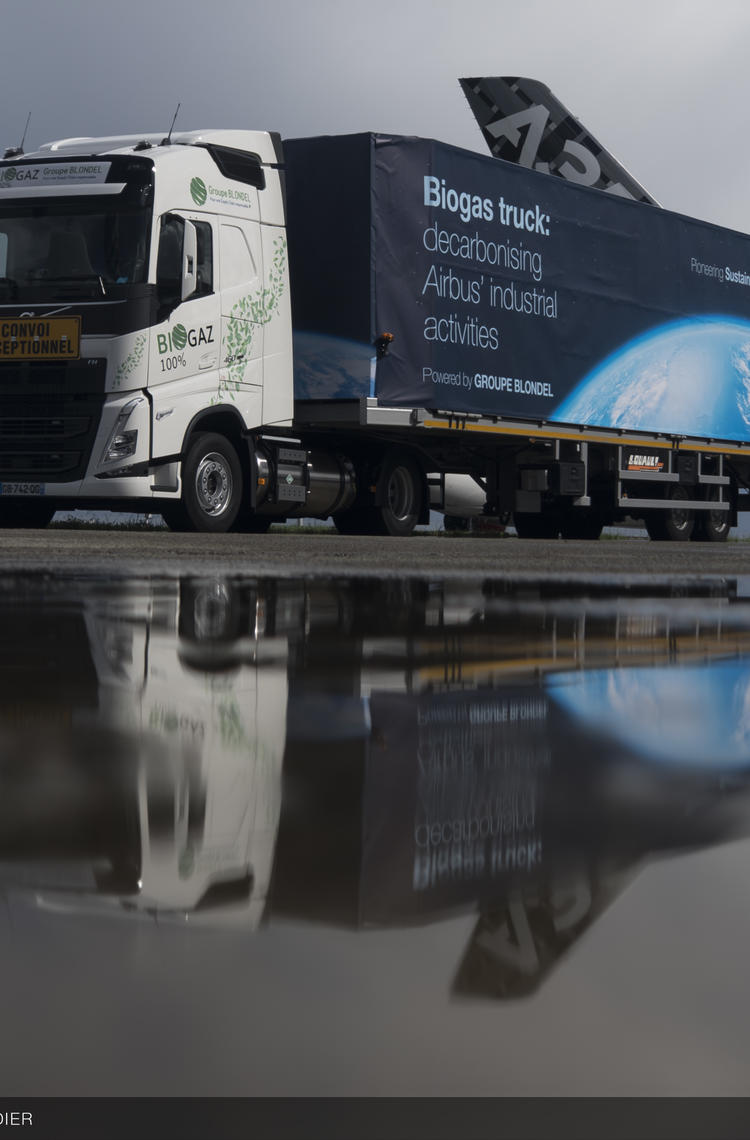In the framework of its sustainability ambitions for production activities, Airbus is introducing trucks powered by biogas to transport single-aisle nose kits from Méaulte to Saint-Nazaire, saving up to 80% of CO² compared to diesel. Airbus aims to expand the use of biogas trucks to transport other aircraft sections across Europe over the next two years.
By progressively reducing traditional fuels in industrial transport and replacing them with other types of propulsion systems or means, Airbus is making a major contribution to its global sustainability ambitions for 2025.
The use of biogas trucks is a part of the partnership agreement with the transporter Groupe Blondel. So far, they will be used in daily operations between Méaulte and Saint-Nazaire, meaning up to four convoys a day, carrying up to 12 single-aisle nose kit sections. In one year, on this route only, Airbus will save some 400 tons of CO².
Biogas is a renewable version of traditional natural gas, which has already been used by Airbus for some road transportation in Germany since 2020. Biogas is obtained from organic biomass in Europe. Compared to natural gas, biogas is made by methanising organic biomass waste, thus recycling materials. Across its entire lifecycle, biogas saves up to 80% of CO² emissions compared to diesel. In addition, trucks powered by biogas feature a 5 dB noise reduction when compared to those powered by diesel.
All single-aisle nose kits are now transported by biogas trucks, and this will continue to be the case as Airbus increases production rates.
Airbus and Groupe Blondel successfully found an agreement to maintain operating costs at their current level. This underlines the commitment of suppliers to support Airbus with its sustainability ambitions. Procurement policy now includes the consideration of environmental efforts in the bidders' offers, which will foster the deployment of biogas and other sustainable energies across industrial transportation activities in the years to come.
Reducing environmental impact by road, sea and air
In line with its sustainability ambitions, Airbus is an active contributor to the development of tomorrow’s greener aviation. The company is strongly committed to supporting the development and use of alternative fuels to reduce the impact of its industrial activities on the environment. The research and use of new technologies or alternative fuels are of particular importance when considering the expected increase of aircraft production in the years to come.
Airbus is progressively introducing alternative energy solutions to its different transportation means: air, road and maritime. Beyond the biogas trucks, Airbus has also been using sustainable aviation fuel in its fleet of Belugas since the end of 2019. And by the end of 2021, Airbus will also install a new propulsion sailing system, based on wind energy, in one of the vessels of the Airbus fleet that transports aerostructures from the Saint-Nazaire plant to its final assembly line (FAL) in Mobile, USA.

